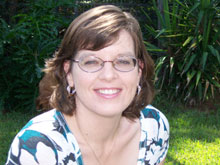3 Myths About Why Writing Science Books for Kids is Hard
April 29, 2015 …and 5 Reasons Why You Shouldn’t Believe Any of Them!
From Jennifer Swanson: Let’s face it, many people think that science and writing are two different entities. Science requires you to use your left brain. Why? Because it involves math, logic, and, well . . . science. Writing requires you to use your right brain. It allows people to be more creative, tapping into their emotions, intuitions, and expressiveness. Do you believe all that? Well, the right-brain-left brain thinking is incorrect. Thinking that left-brained people are logical and right-brained people are creative is a myth. Just like these myths about science writing.
Perhaps you’ve heard some of these:
1. You have to have a degree in science.
This is absolutely not true. While it may help a little to have a background in science, especially if you are going to be using scientific papers in your research, it is not a requirement. Plenty of great science authors don’t have formal training in science. What they do have is the willingness to learn and the determination to succeed. If you have that, that’s all you need to be a science writer.
2. You need to work in a science field.
Not true. You don’t need to be a science teacher or a scientist to write books about science for kids. In fact, sometimes the best writers are the ones without any science background because they can really look at the facts and make them understandable to kids who may know very little science, too.
3. Science books are boring and informational.
Not true at all! Today’s science books are fun, exciting, and engaging. Some are extremely interactive and chock full of fun facts, amazing images and active words. Others are beautiful narratives with a thread of science woven so skillfully that readers are drawn into the story and learn something without being aware of it. Science books come in all shapes and sizes these days.
5 Reasons Why You SHOULD Write Science Books for Children:
1. To cover new and innovative topics.
Want to learn about new discoveries in space, a brand new animal from the ocean deep, or how robots work? You can do it here!
2. To get kids excited about STEM (Science, Technology, Engineering and Math) and writing together.
Help kids to see that writing and science go hand in hand with learning and allow them to expand their imaginations
3. To relate science to real-life things/events people actually do.
Write books about real-life scientists or engineers and help kids to see themselves working in these fields one day.
4. To start a conversation about a science topic.
Need a topic for your dinner table? Why not discuss fracking or maybe nuclear power, or even how one plastic bag can change the world.
5. Anyone can write them!
Yes, anyone who is curious about the science all around them every day can be a science writer.
Jennifer Swanson is faculty, along with Miranda Paul and editor Shelby Alinsky, at the Nuts and Bolts of Science Writing workshop this July 5th-9th. They invite you to engage both halves of your brain and leave your myths at the door as they navigate the rocky and sometimes aquatic narrative environment of science writing!